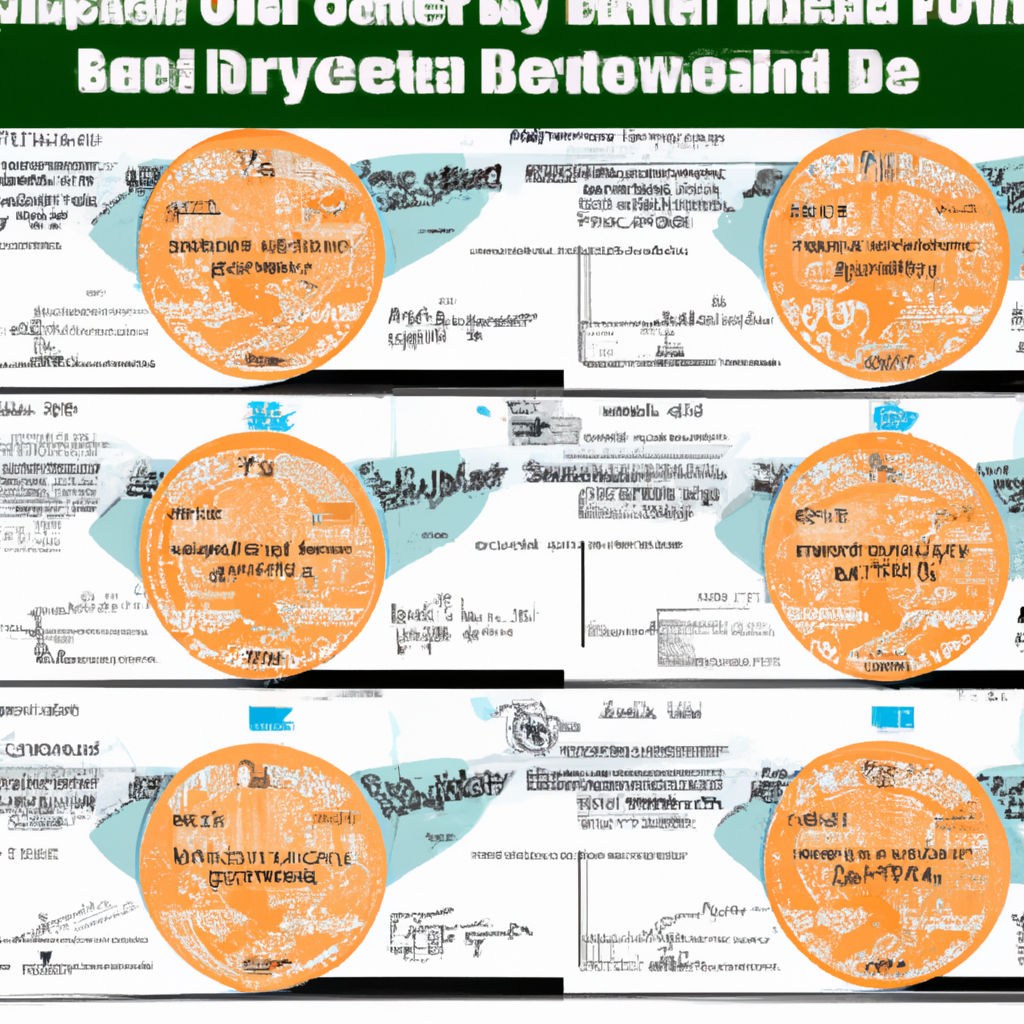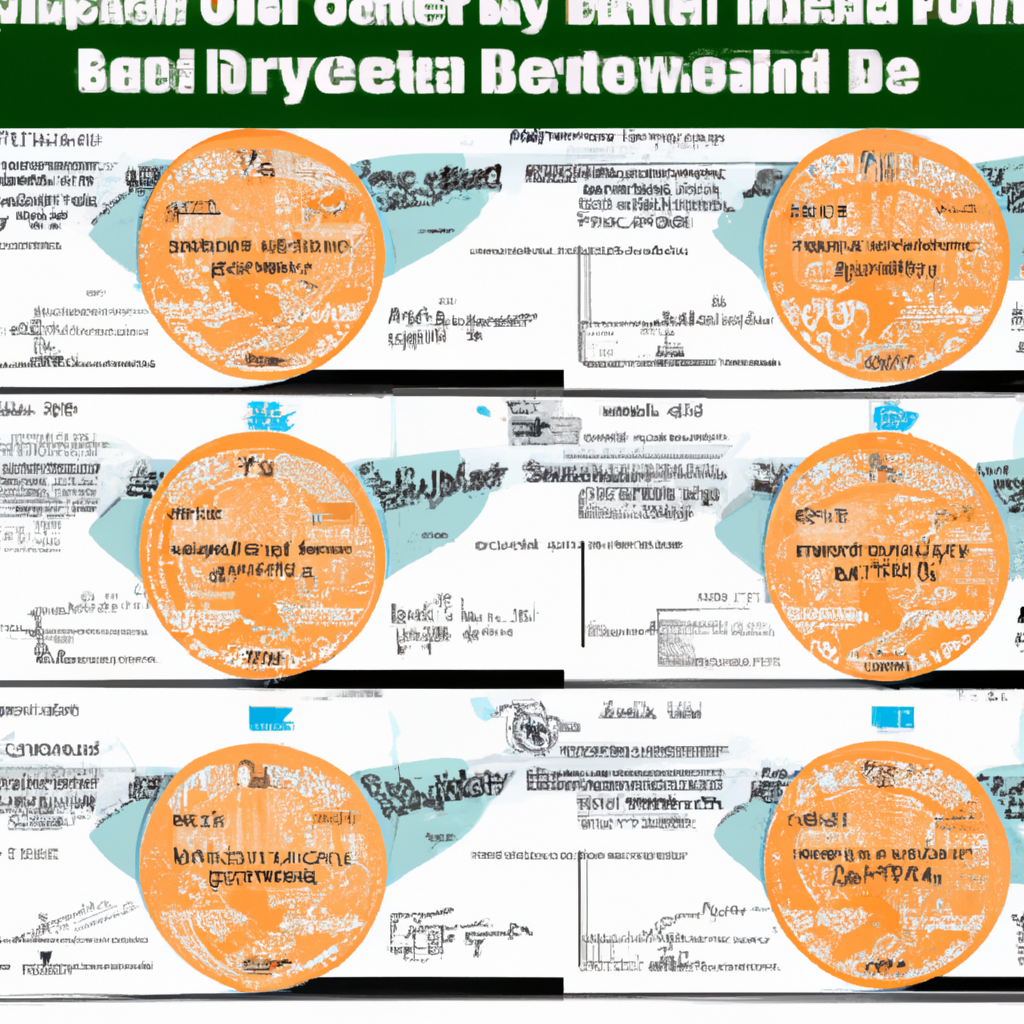Are you interested in buying bonds but not sure where to start? Look no further! In this article, we will explore the various options available for purchasing bonds. Whether you are a seasoned investor or just starting out, understanding where and how to buy bonds is essential. From online platforms to brokerage firms, we will unravel the mystery of buying bonds and guide you through the different purchase options. So, sit back, relax, and let’s dive into the world of bond buying together!

Brokerage Firms
Online Brokerages
Online brokerage firms provide a convenient and accessible platform for investors to purchase bonds. Through online brokerage accounts, you can easily research and compare various bond options, including government, municipal, and corporate bonds. These platforms often provide comprehensive information on the credit quality, maturity, and yield of different bonds, helping you make well-informed investment decisions. Online brokerages also offer the convenience of executing trades online, allowing you to buy bonds at any time and from anywhere, without the need for face-to-face interactions.
Full-Service Brokerages
If you prefer a more personalized approach to bond investing, full-service brokerage firms may be a suitable option for you. With full-service brokers, you have the advantage of working with a dedicated financial advisor who can provide tailored investment advice and guidance. These professionals have in-depth knowledge of the bond market and can assist you in selecting suitable bonds based on your investment goals, risk tolerance, and timeline. While full-service brokerage firms typically charge higher fees or commissions compared to online brokerages, the additional support and expertise they offer can be beneficial, especially for investors who may not have as much knowledge or experience in bond investing.
Banks and Credit Unions
Commercial Banks
Many commercial banks offer their customers the opportunity to invest in bonds directly. This means that you can approach your local bank and inquire about their available bond offerings. Commercial banks may have a selection of government, municipal, and corporate bonds for you to choose from. Investing in bonds through commercial banks can be advantageous if you already have an existing relationship with the bank, as it may provide a more seamless experience and potentially offer benefits such as preferred pricing or access to exclusive bond offerings.
Online Banks
Similar to online brokerage firms, online banks also provide a platform for bond investing. These banks typically offer a range of bond options, including government and corporate bonds, and allow you to manage your investments online. Online banks often provide competitive yields and may have lower fees compared to traditional commercial banks. Additionally, some online banks may offer specialized bond products or promotions to attract investors. Investing in bonds through online banks can be a convenient option for those who prefer to consolidate their financial accounts in one place or who value the ease of managing their investments digitally.
Credit Unions
Credit unions, like commercial banks, provide their members with opportunities to invest in bonds. As member-owned financial institutions, credit unions often offer competitive rates and personalized service. They may have a selection of government, municipal, or corporate bonds available, and their knowledgeable staff can assist you in making informed investment decisions. Investing in bonds through credit unions may also provide the advantage of supporting local communities and enhancing the cooperative nature of the financial industry.
Government Agencies
TreasuryDirect
If you are interested in investing in U.S. government bonds, TreasuryDirect is the official website of the U.S. Department of the Treasury that allows you to purchase Treasury securities directly from the government. TreasuryDirect offers a range of bond options, including Treasury bills, notes, bonds, and inflation-protected securities. Investing through TreasuryDirect eliminates the need for a middleman, such as a broker or bank, and allows you to buy bonds at auction or directly from the government at competitive yields. The platform also provides convenient features, such as the ability to reinvest interest payments and manage your investments online.
Federal Reserve Banks
In addition to TreasuryDirect, you can also purchase certain types of bonds, such as Treasury Inflation-Protected Securities (TIPS), directly from Federal Reserve Banks at auction. These auctions are open to individual investors and institutional investors alike. Participating in auctions through Federal Reserve Banks allows you to acquire bonds at the market-determined yield. It’s important to note that while TreasuryDirect offers a broader range of Treasury securities, purchasing through Federal Reserve Banks is limited to specific bond types.

Municipalities
States and Local Governments
Municipal bonds, or “munis,” are debt securities issued by states, cities, and other local government entities to fund public projects such as infrastructure improvements or schools. If you are interested in investing in municipal bonds, you can directly purchase them from the issuing state or local government. This typically involves contacting the relevant government office or visiting their website to inquire about available bond offerings. Investing in municipal bonds can offer attractive tax advantages, as the interest income generated from many municipal bonds is often exempt from federal income taxes and, in some cases, state and local taxes as well.
Municipal Bond Dealers
An alternative option for purchasing municipal bonds is through municipal bond dealers. These dealers act as intermediaries between the bond issuer and the investor. They buy municipal bonds from various issuers and resell them in the secondary market to individual investors. Municipal bond dealers have access to a wide range of municipal bonds and can provide guidance on selecting bonds that align with your investment objectives. Investing in municipal bonds through dealers allows you to select from a broader range of offerings compared to purchasing directly from states or local governments.
Bond Funds
Mutual Funds
Investing in bond mutual funds provides a diversified approach to bond investing. Mutual funds pool money from multiple investors and use it to invest in a portfolio of bonds. By investing in a bond mutual fund, you essentially own a share of the fund’s overall portfolio, which typically includes a mix of government, municipal, and corporate bonds. Bond mutual funds are managed by professional investment managers who handle the buying and selling of bonds within the fund. This allows investors to benefit from the expertise of professional investors and gain exposure to a diversified selection of bonds, which can help manage risk.
Exchange-Traded Funds (ETFs)
Exchange-Traded Funds (ETFs) are similar to mutual funds in that they offer investors exposure to a diversified portfolio of bonds. However, ETFs trade on stock exchanges, allowing investors to buy and sell shares throughout the trading day at market prices. This provides greater liquidity and flexibility compared to mutual funds, which are priced only at the end of the trading day. ETFs may track specific bond indices or be actively managed, and they offer investors the opportunity to gain exposure to a wide range of bond markets and strategies. Additionally, ETFs often have lower expense ratios compared to mutual funds, making them an attractive option for cost-conscious investors.
Closed-End Funds
Closed-end funds are another type of investment vehicle that can provide exposure to bonds. Closed-end funds, like mutual funds and ETFs, pool money from multiple investors and invest in a portfolio of securities, which can include bonds. However, unlike mutual funds and ETFs, closed-end funds issue a fixed number of shares through an initial public offering (IPO) and trade on stock exchanges afterward. This means that the price of closed-end fund shares can deviate from the net asset value (NAV) of the fund’s underlying securities, which can present buying opportunities for investors. Closed-end funds can offer specialized bond strategies and may include leverage in their investment approach, making them suitable for experienced investors seeking potentially higher returns or specific market exposures.
Insurance Companies
Annuities
Annuities are financial products offered by insurance companies that provide a guaranteed income stream over a specified period or for the rest of your life. While annuities are primarily associated with retirement planning, certain types, such as fixed annuities, can offer the option to invest in bonds. With fixed annuities, your premium payment is invested by the insurance company, often in a portfolio that includes bonds, which helps generate the guaranteed income. Investing in bonds through annuities can provide stability and income certainty, making them an attractive option for conservative investors or those seeking regular income in retirement.
Life Insurance Policies
While life insurance policies primarily serve the purpose of providing financial protection for your loved ones, some permanent life insurance policies, such as whole life or universal life insurance, have an investment component. Through these policies, a portion of your premium payment is invested by the insurance company, which may include bond investments. The cash value of the policy can grow over time, providing potential tax-deferred growth and the opportunity to access funds if needed. Life insurance policies that include a bond component can offer a combination of protection and accumulation, providing a long-term investment option with potential benefits for both the policyholder and their beneficiaries.
Foreign Markets
Foreign Brokerage Firms
For investors looking to diversify their bond portfolio internationally, foreign brokerage firms offer access to foreign bond markets. These firms operate in various countries and provide platforms for investing in bonds issued by governments, corporations, and other entities outside of your home country. Foreign brokerage firms typically have in-depth knowledge and expertise in their respective markets, ensuring that you receive up-to-date information and guidance on investing in foreign bonds. It’s important to note that investing in foreign bonds carries additional risks, such as currency exchange rate fluctuations and geopolitical factors, which should be carefully considered before investing.
International Banks
International banks also play a crucial role in facilitating bond investments in foreign markets. These banks have a global presence and offer a wide range of services, including bond trading and investment advisory, to their clients. Investing in foreign bonds through international banks provides the advantage of leveraging their expertise and established networks in various countries. The availability of different bond options, market insights, and research can assist investors in making well-informed decisions when expanding their bond investments into foreign markets.
Individuals or Private Entities
Directly from Individuals
In certain cases, you may have the opportunity to buy bonds directly from individuals who are looking to sell their bonds in the secondary market. This can be done through private negotiations or by participating in online platforms specifically designed for individual bond transactions. Buying bonds directly from individuals can potentially offer unique investment opportunities, such as purchasing bonds at discounted prices or acquiring bonds that are not readily available through traditional channels. However, it’s important to conduct thorough due diligence on the seller and understand the risks associated with such transactions, as they may not come with the same level of transparency and protections as purchasing through established financial institutions.
Crowdfunding Platforms
The rise of crowdfunding platforms has also extended to the bond market, allowing individuals to invest in bonds issued by private entities or projects. These platforms provide an online marketplace where issuers can raise capital by offering bonds directly to individual investors. Investing in bonds through crowdfunding platforms can offer access to unique investment opportunities, such as supporting small businesses or funding specific projects. However, it’s crucial to carefully evaluate the creditworthiness and viability of the issuer before committing to invest, as these bonds may carry higher risks and may not have the same level of regulatory oversight as bonds offered by established institutions.
Financial Advisors
Independent Financial Advisors
Working with an independent financial advisor can provide valuable guidance and personalized advice on selecting and purchasing bonds. Independent financial advisors are professionals who offer objective recommendations and act in their clients’ best interests. They can help assess your financial goals, risk tolerance, and investment horizon to develop a comprehensive bond investment strategy. These advisors have access to a wide range of bond offerings and can leverage their expertise to help you navigate the bond market and select suitable investments. Engaging an independent financial advisor can provide peace of mind and support throughout your bond investing journey.
Robo-Advisors
Robo-advisors are digital platforms that provide algorithm-based financial advice and automated portfolio management services. These platforms use computer algorithms to create and manage a diversified portfolio of bonds based on your investment goals and risk tolerance. Robo-advisors offer a user-friendly interface and allow investors to manage their bond investments online with minimal human interaction. While they may not provide the same level of personalization and tailored advice as human financial advisors, robo-advisors can be a cost-effective and convenient option for investors looking to access bond investments without the need for extensive financial knowledge or high account minimums.
Secondary Market
Brokered Market
The brokered market refers to the secondary market where previously issued bonds are bought and sold between investors, typically with the assistance of a brokerage firm or dealer. In the brokered market, individual investors have the opportunity to buy bonds from other individual investors or institutions. This secondary market provides liquidity and allows investors to trade bonds after their initial issuance. The brokered market can offer a wide range of bond options and potentially provide opportunities for investors to find bonds at different price levels or with unique features. Participating in the brokered market requires brokerage services or access to trading platforms that facilitate bond transactions.
Bond Auctions
Bond auctions are another avenue for purchasing bonds in the secondary market. In bond auctions, both new bond issues and previously issued bonds are put up for sale, and potential investors place bids to purchase the bonds. Bonds are typically sold to the highest bidders, with the interest rates or yields determined through the auction process. Bond auctions are conducted by various entities, including government agencies and financial institutions, and can provide a transparent and competitive environment for buying and selling bonds. Participating in bond auctions can offer the opportunity to acquire bonds at potentially advantageous prices, depending on market demand and prevailing interest rates.
In conclusion, there are numerous options available for buying bonds, each with its own advantages and considerations. From online brokerages and full-service brokerages to banks, credit unions, and government agencies, investors have a variety of avenues to explore when looking to add bonds to their investment portfolios. Municipalities, bond funds, insurance companies, foreign markets, individuals or private entities, financial advisors, and the secondary market all offer unique opportunities for bond investing. By understanding the different purchase options and conducting thorough research, you can make informed decisions and tailor your bond investments to align with your financial goals and risk tolerance.

